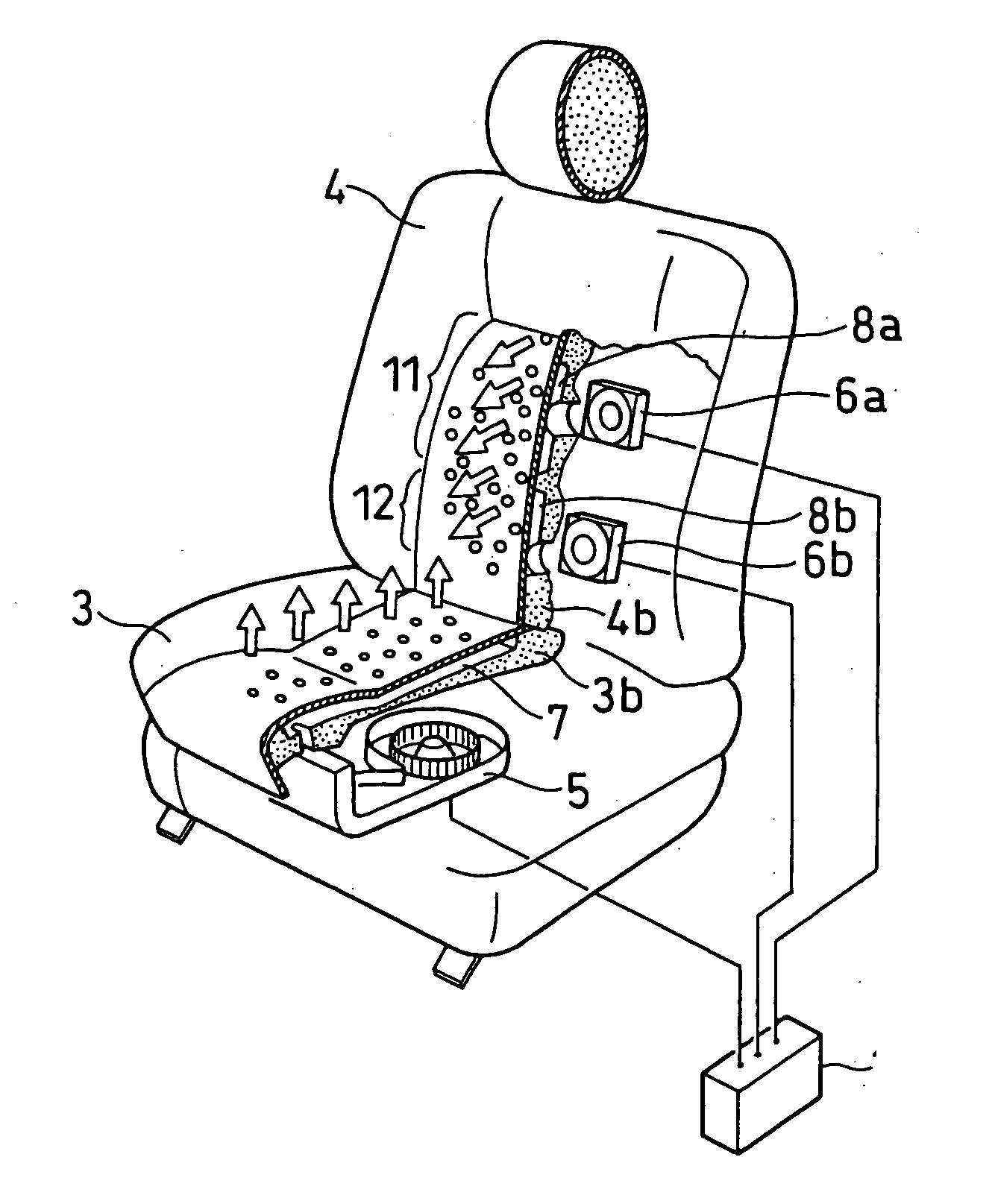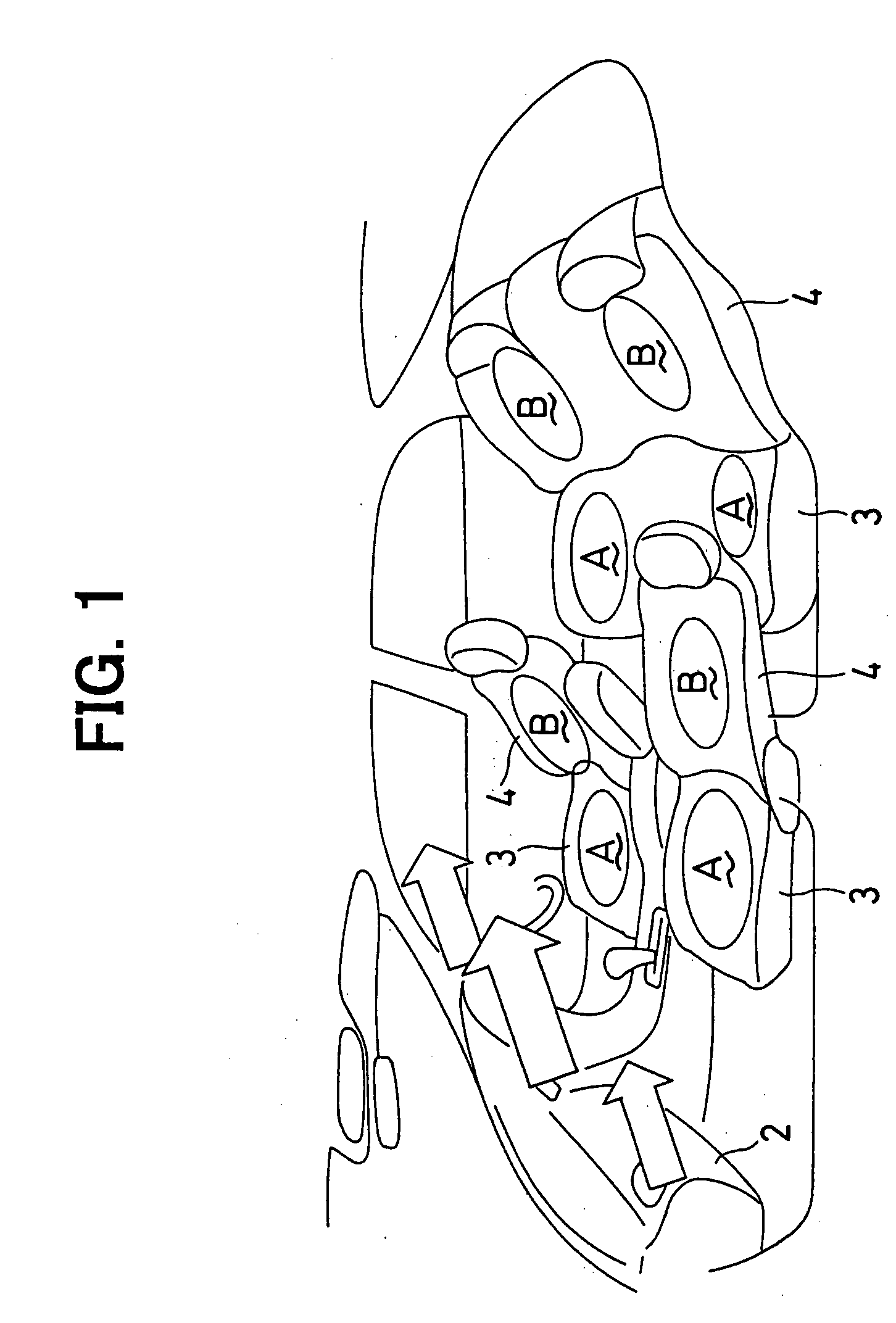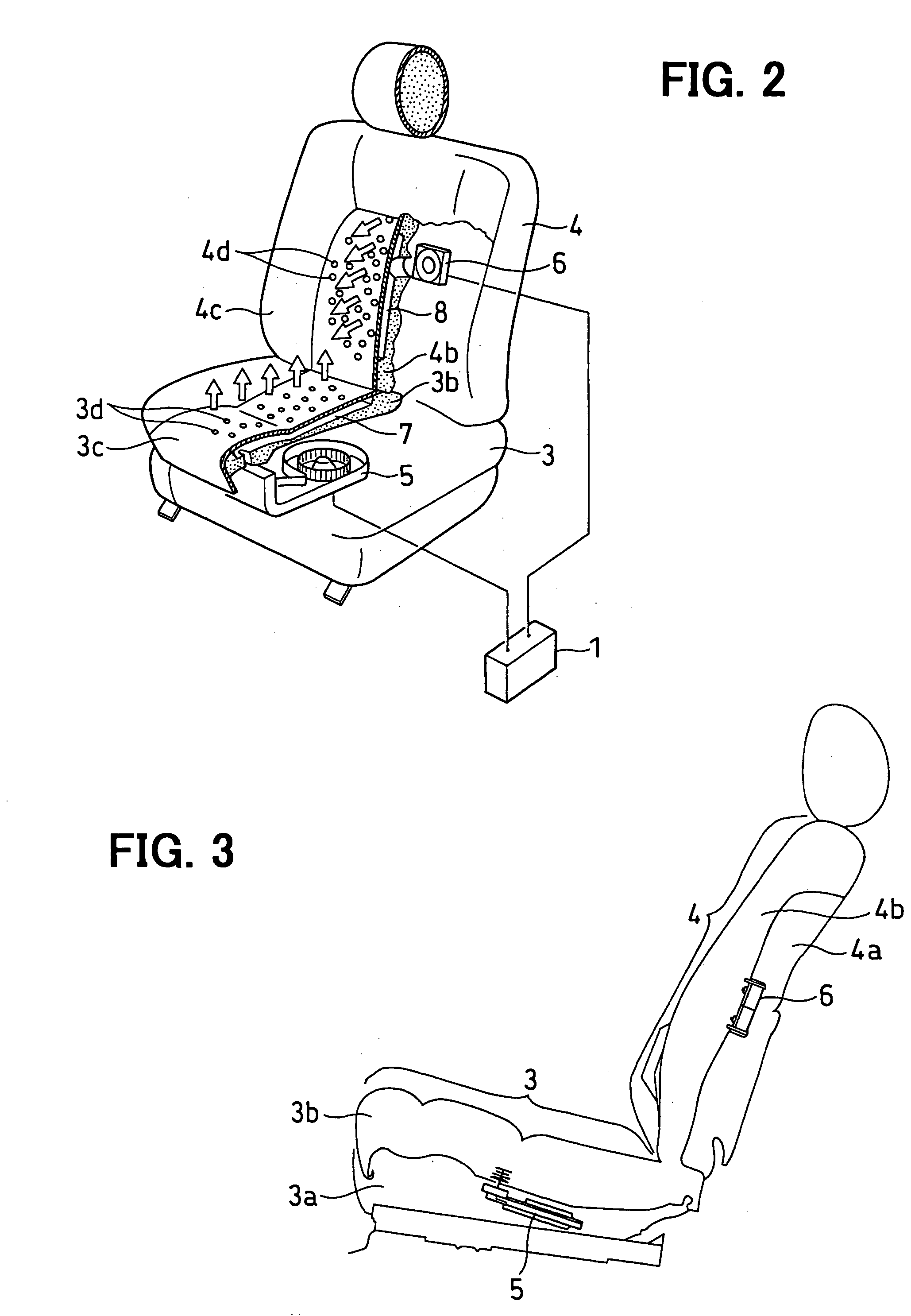Vehicle air conditioner with seat air conditioning unit
a technology of seat air conditioner and vehicle air conditioner, which is applied in the direction of domestic cooling apparatus, ventilation systems, heating types, etc., can solve the problems of excessive cooling of the waist portion of the passenger, and lumbago of the passenger,
- Summary
- Abstract
- Description
- Claims
- Application Information
AI Technical Summary
Benefits of technology
Problems solved by technology
Method used
Image
Examples
first embodiment
[0032] (First Embodiment)
[0033] A first preferred embodiment of the present invention will be now described with reference to FIGS. 1-3. A vehicle air conditioner according to the first embodiment includes an interior air conditioning unit (front air conditioning unit) and a seat air conditioning unit. The interior air conditioning unit blows conditioned air from a front portion in a passenger compartment, so that air conditioning operation such as a cooling operation, a heating operation and a dehumidifying operation of the passenger compartment can be performed. The seat air conditioning unit is provided to blow conditioned air from a surface of a vehicle seat on which a passenger sits.
[0034] In FIG. 1, the interior air conditioning unit is an existent air conditioning unit disposed in a dashboard that is positioned at a front side in the passenger compartment. The interior air conditioning unit blows conditioned air (cool air, warm air, dehumidified air, etc.) from a face air out...
second embodiment
[0044] (Second Embodiment)
[0045] The second embodiment of the present invention will be now described with reference to FIG. 4.
[0046] In the above-described first embodiment, when the seat air conditioning operation is selected by the passenger in the cooling operation of the passenger compartment, the air blowing amount from the seat back 4 is set smaller by the ECU 1, so that the cooling capacity of the seat back 4 is set smaller. However, in the second embodiment, when a predetermined time passes after the seat air conditioning operation is started in the cooling operation, the cooling capacity of cool air blown from the seat back 4 is set smaller.
[0047] As shown in FIG. 4, at step S1, a control value F(Fr) of the interior air conditioning unit is calculated based on outputs of sensors such as a suction air temperature sensor and an inside air temperature sensor, a set air temperature set by the passenger and the like. At step S2, a control value FC of the seat cushion 3 and a co...
third embodiment
[0058] (Third Embodiment)
[0059] In the above-described first and second embodiments, when the seat air conditioning operation is selected in the cooling operation of the interior air conditioning unit, the cooling capacity of the seat back 4 is reduced, thereby preventing the waist portion of the passenger seated on the vehicle seat from being excessively cooled. However, in the third embodiment, when the seat air conditioning operation is selected in the cooling operation of the interior air conditioning unit, the cooling capacity of the cool air blown from the vehicle seat (both of the seat cushion 3 and the seat back 4) is reduced, thereby preventing the waist portion of the passenger from being excessively cooled.
[0060] Specifically, the control operation in the third embodiment will be described with reference to FIG. 5. At step S11, the control value F(Fr) of the interior air conditioning unit is calculated based on sensor outputs of a suction air temperature and an inside air...
PUM
 Login to View More
Login to View More Abstract
Description
Claims
Application Information
 Login to View More
Login to View More - R&D
- Intellectual Property
- Life Sciences
- Materials
- Tech Scout
- Unparalleled Data Quality
- Higher Quality Content
- 60% Fewer Hallucinations
Browse by: Latest US Patents, China's latest patents, Technical Efficacy Thesaurus, Application Domain, Technology Topic, Popular Technical Reports.
© 2025 PatSnap. All rights reserved.Legal|Privacy policy|Modern Slavery Act Transparency Statement|Sitemap|About US| Contact US: help@patsnap.com



